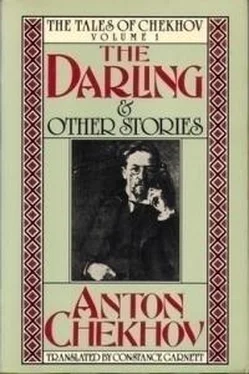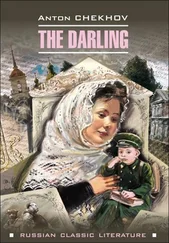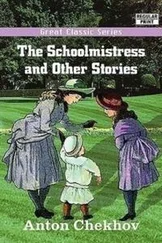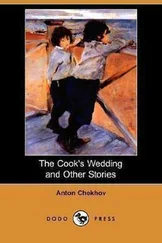Антон Чехов - The Darling
Здесь есть возможность читать онлайн «Антон Чехов - The Darling» — ознакомительный отрывок электронной книги совершенно бесплатно, а после прочтения отрывка купить полную версию. В некоторых случаях можно слушать аудио, скачать через торрент в формате fb2 и присутствует краткое содержание. Год выпуска: 2014, Издательство: epubBooks Classics, Жанр: Классическая проза, на английском языке. Описание произведения, (предисловие) а так же отзывы посетителей доступны на портале библиотеки ЛибКат.
- Название:The Darling
- Автор:
- Издательство:epubBooks Classics
- Жанр:
- Год:2014
- ISBN:нет данных
- Рейтинг книги:5 / 5. Голосов: 1
-
Избранное:Добавить в избранное
- Отзывы:
-
Ваша оценка:
- 100
- 1
- 2
- 3
- 4
- 5
The Darling: краткое содержание, описание и аннотация
Предлагаем к чтению аннотацию, описание, краткое содержание или предисловие (зависит от того, что написал сам автор книги «The Darling»). Если вы не нашли необходимую информацию о книге — напишите в комментариях, мы постараемся отыскать её.
The Darling — читать онлайн ознакомительный отрывок
Ниже представлен текст книги, разбитый по страницам. Система сохранения места последней прочитанной страницы, позволяет с удобством читать онлайн бесплатно книгу «The Darling», без необходимости каждый раз заново искать на чём Вы остановились. Поставьте закладку, и сможете в любой момент перейти на страницу, на которой закончили чтение.
Интервал:
Закладка:
"Alyosha has come," the invalid said softly to herself.
There had long been established between Sasha and her uncle a tacit compact, to take turns in sitting with the patient. On this occasion Sasha closed her reading–book, and without uttering a word, went softly out of the room. Laptev took an historical novel from the chest of drawers, and looking for the right page, sat down and began reading it aloud.
Nina Fyodorovna was born in Moscow of a merchant family. She and her two brothers had spent their childhood and early youth, living at home in Pyatnitsky Street. Their childhood was long and wearisome; her father treated her sternly, and had even on two or three occasions flogged her, and her mother had had a long illness and died. The servants were coarse, dirty, and hypocritical; the house was frequented by priests and monks, also hypocritical; they ate and drank and coarsely flattered her father, whom they did not like. The boys had the good–fortune to go to school, while Nina was left practically uneducated. All her life she wrote an illegible scrawl, and had read nothing but historical novels. Seventeen years ago, when she was twenty–two, on a summer holiday at Himki, she made the acquaintance of her present husband, a landowner called Panaurov, had fallen in love with him, and married him secretly against her father's will. Panaurov, a handsome, rather impudent fellow, who whistled and lighted his cigarette from the holy lamp, struck the father as an absolutely worthless person. And when the son–in–law began in his letters demanding a dowry, the old man wrote to his daughter that he would send her furs, silver, and various articles that had been left at her mother's death, as well as thirty thousand roubles, but without his paternal blessing. Later he sent another twenty thousand. This money, as well as the dowry, was spent; the estate had been sold and Panaurov moved with his family to the town and got a job in a provincial government office. In the town he formed another tie, and had a second family, and this was the subject of much talk, as his illicit family was not a secret.
Nina Fyodorovna adored her husband. And now, listening to the historical novel, she was thinking how much she had gone through in her life, how much she had suffered, and that if any one were to describe her life it would make a very pathetic story. As the tumour was in her breast, she was persuaded that love and her domestic grief were the cause of her illness, and that jealousy and tears had brought her to her hopeless state.
At last Alexey Fyodorovitch closed the book and said:
"That's the end, and thank God for it. To–morrow we'll begin a new one."
Nina Fyodorovna laughed. She had always been given to laughter, but of late Laptev had begun to notice that at moments her mind seemed weakened by illness, and she would laugh at the smallest trifle, and even without any cause at all.
"Yulia came before dinner while you were out," she said. "So far as I can see, she hasn't much faith in her papa. 'Let papa go on treating you,' she said, 'but write in secret to the holy elder to pray for you, too.' There is a holy man somewhere here. Yulia forgot her parasol here; you must take it to her to–morrow," she went on after a brief pause. "No, when the end comes, neither doctors nor holy men are any help."
"Nina, why can't you sleep at night?" Laptev asked, to change the subject.
"Oh, well, I don't go to sleep—that's all. I lie and think."
"What do you think about, dear?"
"About the children, about you … about my life. I've gone through a great deal, Alyosha, you know. When one begins to remember and remember…. My God!" She laughed. "It's no joke to have borne five children as I have, to have buried three…Sometimes I was expecting to be confined while my Grigory Nikolaitch would be sitting at that very time with another woman. There would be no one to send for the doctor or the midwife. I would go into the passage or the kitchen for the servant, and there Jews, tradesmen, moneylenders, would be waiting for him to come home. My head used to go round …. He did not love me, though he never said so openly. Now I've grown calmer—it doesn't weigh on my heart; but in old days, when I was younger, it hurt me—ach! how it hurt me, darling! Once— while we were still in the country—I found him in the garden with a lady, and I walked away…I walked on aimlessly, and I don't know how, but I found myself in the church porch. I fell on my knees: 'Queen of Heaven!' I said. And it was night, the moon was shining…."
She was exhausted, she began gasping for breath. Then, after resting a little, she took her brother's hand and went on in a weak, toneless voice:
"How kind you are, Alyosha! … And how clever! … What a good man you've grown up into!"
At midnight Laptev said good–night to her, and as he went away he took with him the parasol that Yulia Sergeyevna had forgotten. In spite of the late hour, the servants, male and female, were drinking tea in the dining–room. How disorderly! The children were not in bed, but were there in the dining–room, too. They were all talking softly in undertones, and had not noticed that the lamp was smoking and would soon go out. All these people, big and little, were disturbed by a whole succession of bad omens and were in an oppressed mood. The glass in the hall had been broken, the samovar had been buzzing every day, and, as though on purpose, was even buzzing now. They were describing how a mouse had jumped out of Nina Fyodorovna's boot when she was dressing. And the children were quite aware of the terrible significance of these omens. The elder girl, Sasha, a thin little brunette, was sitting motionless at the table, and her face looked scared and woebegone, while the younger, Lida, a chubby fair child of seven, stood beside her sister looking from under her brows at the light.
Laptev went downstairs to his own rooms in the lower storey, where under the low ceilings it was always close and smelt of geraniums. In his sitting–room, Panaurov, Nina Fyodorovna's husband, was sitting reading the newspaper. Laptev nodded to him and sat down opposite. Both sat still and said nothing. They used to spend whole evenings like this without speaking, and neither of them was in the least put out by this silence.
The little girls came down from upstairs to say good–night. Deliberately and in silence, Panaurov made the sign of the cross over them several times, and gave them his hand to kiss. They dropped curtsies, and then went up to Laptev, who had to make the sign of the cross and give them his hand to kiss also. This ceremony with the hand–kissing and curtsying was repeated every evening.
When the children had gone out Panaurov laid aside the newspaper and said:
"It's not very lively in our God–fearing town! I must confess, my dear fellow," he added with a sigh, "I'm very glad that at last you've found some distraction."
"What do you mean?" asked Laptev.
"I saw you coming out of Dr. Byelavin's just now. I expect you don't go there for the sake of the papa."
"Of course not," said Laptev, and he blushed.
"Well, of course not. And by the way, you wouldn't find such another old brute as that papa if you hunted by daylight with a candle. You can't imagine what a foul, stupid, clumsy beast he is! You cultured people in the capitals are still interested in the provinces only on the lyrical side, only from the paysage and Poor Anton point of view, but I can assure you, my boy, there's nothing logical about it; there's nothing but barbarism, meanness, and nastiness—that's all. Take the local devotees of science—the local intellectuals, so to speak. Can you imagine there are here in this town twenty–eight doctors? They've all made their fortunes, and they are living in houses of their own, and meanwhile the population is in just as helpless a condition as ever. Here, Nina had to have an operation, quite an ordinary one really, yet we were obliged to get a surgeon from Moscow; not one doctor here would undertake it. It's beyond all conception. They know nothing, they understand nothing. They take no interest in anything. Ask them, for instance, what cancer is—what it is, what it comes from."
Читать дальшеИнтервал:
Закладка:
Похожие книги на «The Darling»
Представляем Вашему вниманию похожие книги на «The Darling» списком для выбора. Мы отобрали схожую по названию и смыслу литературу в надежде предоставить читателям больше вариантов отыскать новые, интересные, ещё непрочитанные произведения.
Обсуждение, отзывы о книге «The Darling» и просто собственные мнения читателей. Оставьте ваши комментарии, напишите, что Вы думаете о произведении, его смысле или главных героях. Укажите что конкретно понравилось, а что нет, и почему Вы так считаете.












